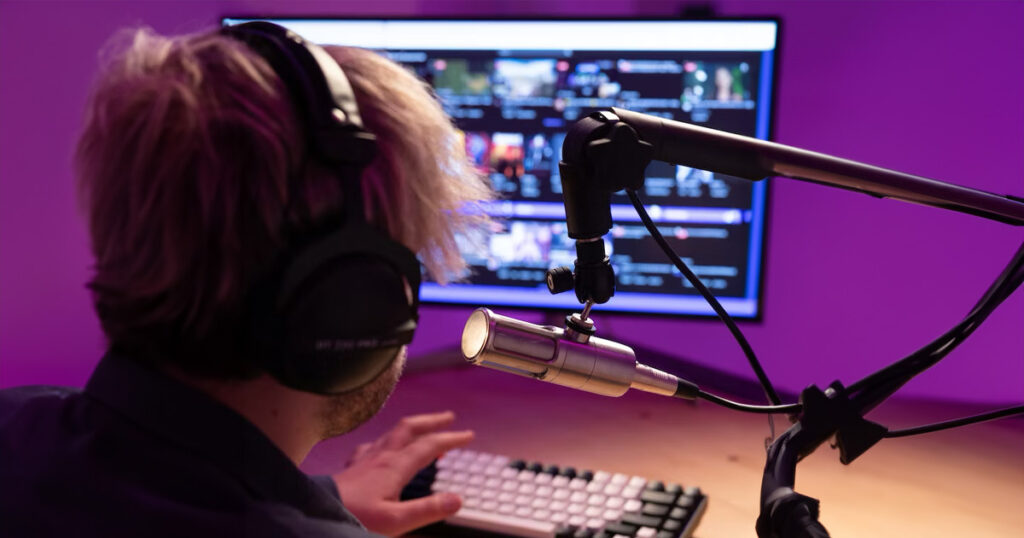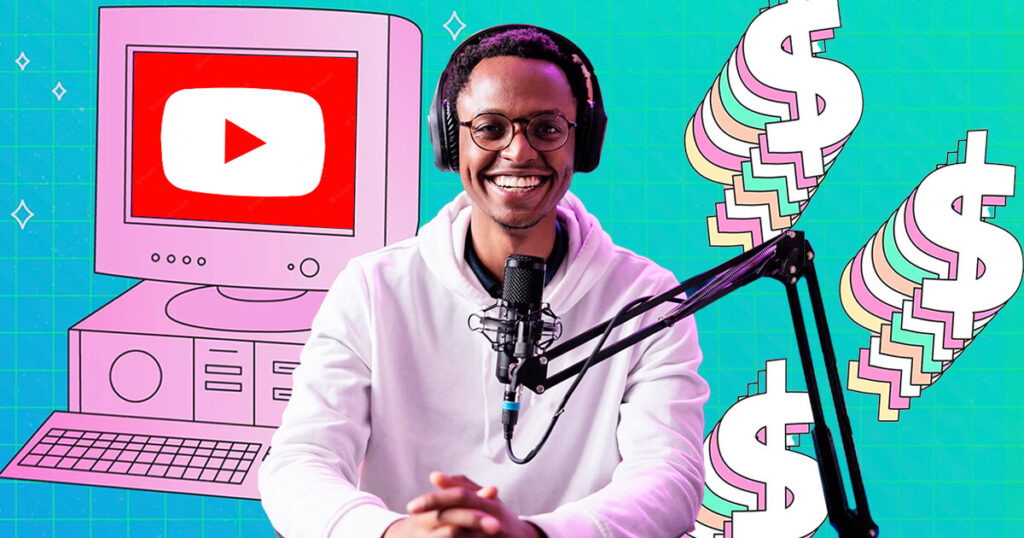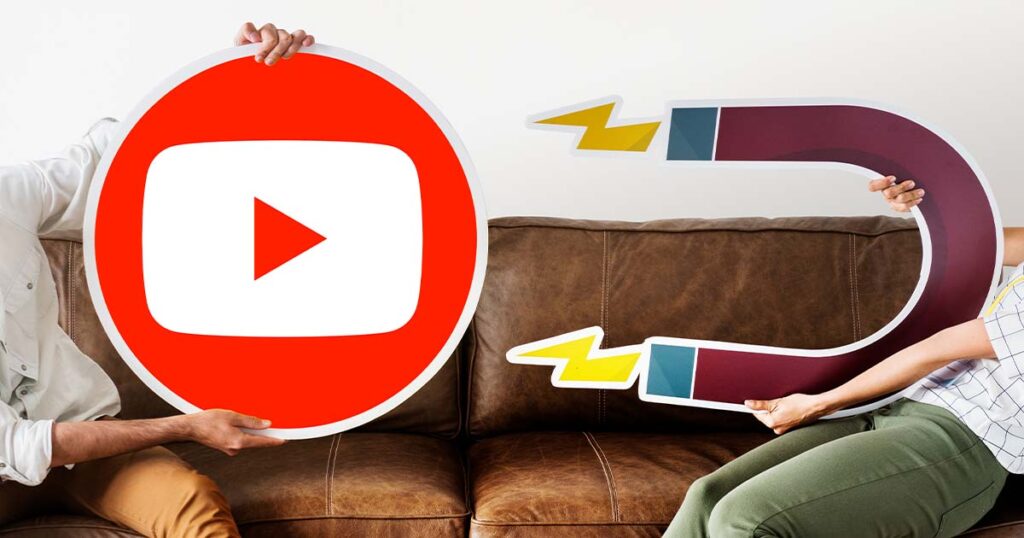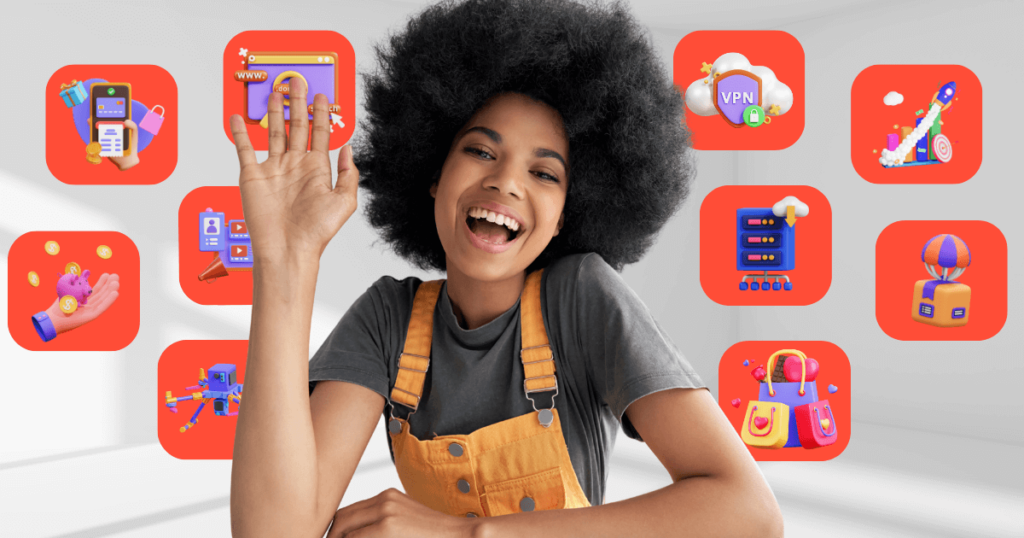Digital content creators, or just “creators”, is an umbrella term that covers anyone who creates and shares content online. Bloggers, YouTubers, podcasters, and influencers on social media platforms, such as TikTok, Twitter, or Instagram, are all considered to be content creators. In fact, anyone who posts online could be considered a creator. But the term is most often used to refer to people who create content for the intended purpose of growing an audience.
What does a content creator do?
In the age of the internet, content creators are the storytellers, educators, entertainers, and influencers that shape our online experience. What a content creator does depends on the type of content they create. For example, a Youtuber produces video content. While a travel blogger publishes both written and photographic content.
There are many types of content creators, all of whom work in different ways and on different platforms. But most simply put, a content creator is someone who develops content for online audiences.
Types of content creators
Here are eight different types of content creators and the kinds of content they produce:
- Bloggers
- Vloggers and YouTubers
- Podcasters
- Social media influencers
- Photographers
- Artists and illustrators
- Gamers and streamers
- Educational content creators
Bloggers
Bloggers specialize in written content and often maintain personal blogs or contribute articles to websites. They cover diverse topics, including news, lifestyle, travel, technology, fashion, and more. They may also create long-form content such as ebooks or white papers.
Vloggers and YouTubers
Vloggers or YouTubers create video-based content. They film themselves or events, share experiences, provide tutorials, offer product reviews, or entertain their audience through sketches, challenges, or storytelling. They often build a loyal subscriber base and monetize their content through ads, sponsorships, and merchandise.
Podcasters
Podcasters create audio-based content tailored for a specific audience that users can stream or download. They host shows called podcasts that can cover a wide range of topics spanning interviews, true crime, news analysis, self-help, comedy, or educational content. Podcasters may also collaborate with guests and experts in their field to provide unique perspectives.
Social Media Influencers
Influencers leverage social media platforms such as Instagram, TikTok, or Twitter to build a following and influence their audience. They create engaging content, share their experiences, promote products or services, and collaborate with brands. Influencers often focus on specific niches such as beauty, fitness, travel, food, or gaming.
Photographers
Photographers specialize in capturing and sharing compelling visual imagery. They may focus on nature, landscapes, portraits, events, or fashion photography. Photographers will share their work on websites, social media platforms, and sell their prints as a way to monetize.
Artists and Illustrators
Artists and illustrators create visual content using various mediums, including traditional and digital art. They share their creations on platforms like Instagram, DeviantArt, or personal websites. They may produce illustrations, comics, digital paintings, or character designs. Artists will often offer exclusive content behind a paywall through platforms such as Patreon.
Gamers and Streamers
Gamers create content centered around video games. They stream their gameplay sessions on platforms like Twitch or YouTube, providing commentary, walkthroughs, or tutorials. They may also engage with their audience through live chats and collaborations with other gamers. Most gamers monetize via a revenue split with the platform, such as Twitch or YouTube.
Educational Content Creators
These individuals focus on creating content for educational purposes. They may develop online courses, tutorials, or explanatory videos on platforms like Udemy, YouTube, or Teachable. Educational content creators cover a wide range of subjects, including sales, marketing, math, programming, language learning, and more.
These are just some of the many types of content creators there are. The digital landscape offers opportunities for people with all sorts of skills and interests to share their knowledge, creativity, and expertise with a global audience.
How do you become a content creator?
To become a creator, you must regularly post content online. Most content creators begin by discovering a niche they’re interested in, choosing a type of content creation, then publishing that content on a major platform so it can be seen by others. The most successful creators are those who consistently post, improve the quality of their work, and build relationships with their audiences.
Millions of people are choosing to pursue content creation as a full-time job or hobby. In fact, a 2019 survey conducted by The Harris Poll, a global market research firm, revealed that children are three times more likely to aspire to be a YouTuber than an Astronaut. This rising digital occupation has resulted in the formation of what’s referred to as the “creator economy.” And because of this, a growing host of new tools are available that make it easier than ever to get started.
Understanding the value and methods of digital content creation is fundamental for individuals and businesses wishing to thrive online.
How much do content creators get paid?
The amount content creators get paid is based on several factors such as their niche, platform, audience size, the nature of their content, and monetization methods. According to Glassdoor, the average income for a content creator is $48,390 per year. However, world famous creators such as MrBeast are able to earn tens of millions in a single year. While creators just starting out may earn just a few hundred dollars, if anything at all.
Here are the average yearly earnings of the most popular type of creators according to ZipRecruiter as of November 2023.
| Creator | Average yearly earnings |
|---|---|
| YouTuber | $68,714 |
| Social media influencer | $57,928 |
| Podcaster | $32,989 |
| Streamer | $56,375 |
| Course creator | $82,499 |
Source(s): ZipRecruiter: YouTubers, Social media influencers, Podcasters, Streamers, Online course creators
What’s the difference between a creator and an influencer?
While influencers are often also content creators, the key difference between the two is in the way they measure success. An influencer’s measure of success is in how much value they are able to offer brands by “influencing” the decision making of their audience. Whereas a creator’s measure of success is determined by the value they offer their audience.
What is an influencer?
An influencer is a person who has built a substantial following on social media – or other digital platforms – and can sway their audience’s opinions, behaviors, or purchasing decisions. Influencers have a strong personal brand and connection with their audience, which they leverage to promote products, services, or causes.
Ways to spot an influencer:
- Utilizes, promotes, and/or features products in their posts – often mentioning and tagging the brand.
- Engages in affiliate marketing where they may receive compensation for getting their audience to click on the links they include in their profile bios or video descriptions.
- Focuses heavily on building their personal brand for the purpose of attracting financial opportunities.
What makes a creator different?
Creators are people who post primarily to share, teach, and/or entertain. Rather than prioritizing their personal brand for income, a creator’s main focus is to produce high-quality and engaging content that their audience finds valuable.
Ways to spot a creator:
- Shows a genuine passion for their chosen field and a strong desire to share their knowledge or creativity.
- Demonstrates specialized skills in photography, video editing, graphic design, writing, or other relevant fields depending on their chosen medium.
- Actively builds community with their audience by responding to comments, asking for feedback, and encouraging participation.
Is becoming a digital content creator right for you?
Ultimately, the choice to become a content creator should stem from a genuine passion for sharing unique perspectives or expertise, and a desire to engage with others in meaningful ways. But be prepared to invest significant time and effort in honing your craft and building an audience.
If you feel a calling towards content creation, have a capacity for resilience, and are willing to navigate the uncertainties of a dynamic career path, becoming a content creator may well be the right choice for you.




